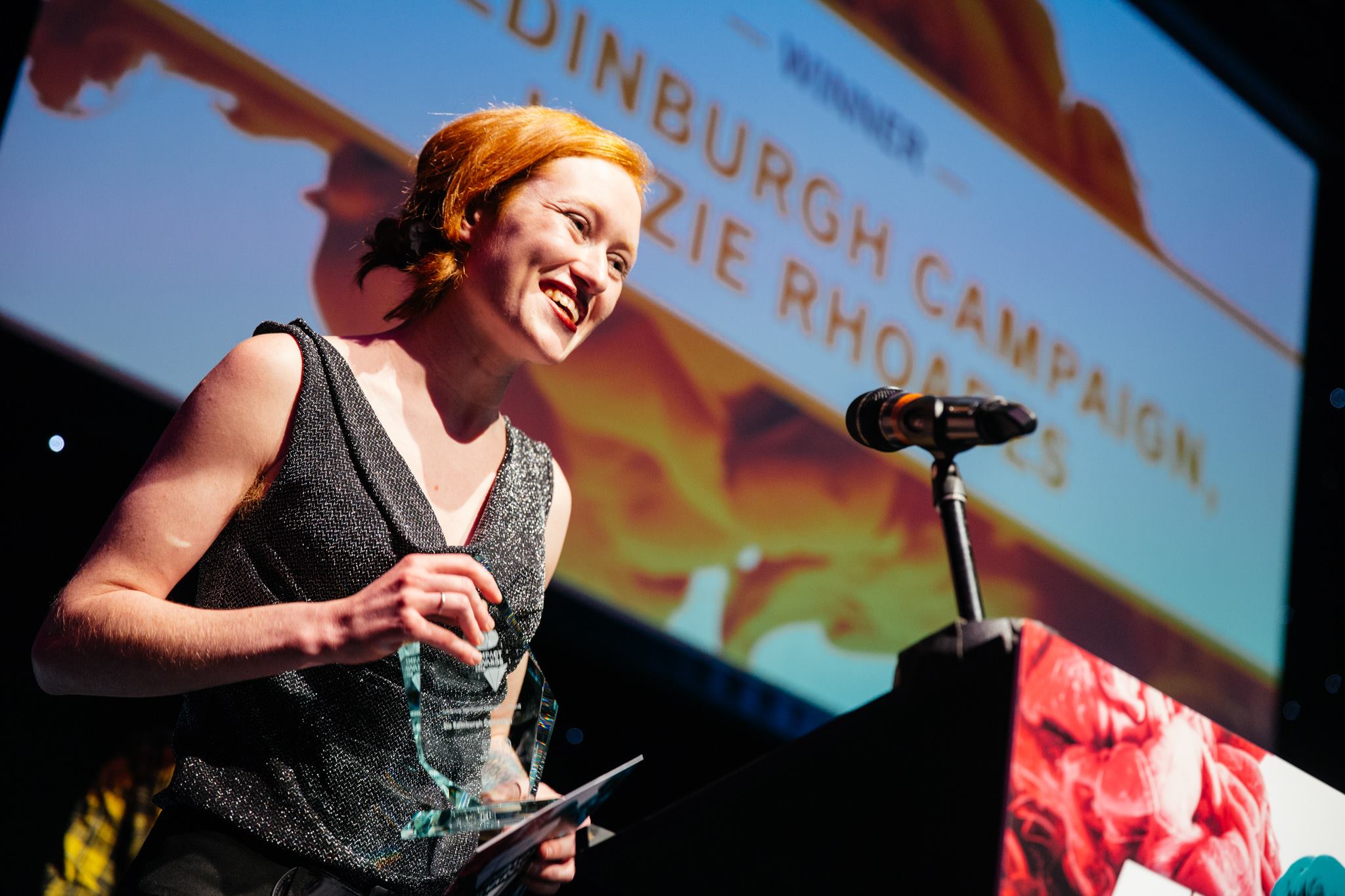Sustainability Benchmarking Internship: Lizzie Rhoades

Sustainable Development graduate Lizzie Rhoades discusses her summer internship mapping sustainability progress across the University.
It’s been four years since I first heard about the Department of Social Responsibility and Sustainability, four years in which I’ve explored every aspect of sustainability that I could find in the University of Edinburgh. I’ve done everything from running talks and workshops, volunteering with community gardens, promoting behaviour change, and studying it through my degree in Sustainable Development. I fell in love with the work being done every day to make the world a better place, and loved to bring that passion to everything I tried.
So when I heard about an opportunity to apply for an internship with the Department of Social Responsibility and Sustainability to look into how the many different departments in the University engage with the Department for Social Responsibility and Sustainability, I knew that was the next aspect of sustainability I wanted to try. Little did I know that I was in for the most intensive 8 weeks of my life (yes, even more intense than writing my dissertation)!
The first day, I was almost overwhelmed by the amount of information I needed to collect. There were 46 departments that I was going to be researching, and I needed to benchmark them against 25 criteria each to analyse their engagement. The enormity of the project was astounding, and I loved it. I had to first understand how the University works as a whole with so many different departments in place, which was no small feat in itself, as the University is massive! Once I was clear on that, I began my research. I compiled documents and spreadsheets for days, trying new ways to display the data was collecting so that it was understandable and easily analysed. I’d done some data analysis before, but it definitely felt like I’d jumped in at the deep end with so many nuanced pieces of data to analyse!
Thankfully, I was able to spend some time mired in the data, but also step back occasionally to look at it as a whole and start to identify trends. This was especially helped by the break I had two weeks in, when I helped to coordinate the World Symposium on Social Responsibility and Sustainability. Being able to take a short break from the data to organise catering and speakers and presentation slides helped me to be able to go back into the data with a fresh perspective, not to mention that I got to listen in on so many fascinating presentations from all over the world!
After the symposium, I dove right back into the data and began preparing for interviews and phone calls. The phone calls were a true test of my patience, as most of the people I talked to were not convinced that I was not trying to sell them something, but in the end it was an incredibly useful skill to practice.
Then, for the end of the project, I had to put together reports on each of the departments, identifying the strengths, weaknesses, opportunities, and barriers (for those of you in business, I’m naming this the SWOB analysis!). This was probably my least favourite part, as after a while, all 46 of the reports started to sound the same!
I was a bit self-conscious when I presented to some of the staff members my final results, as eight weeks of data analysis does not provide very fun slides, so I tried to make up for it with quotes from interviews and surveys I performed that were more fun! Despite the boring blue slides, I was ecstatic to have been able to finish the bulk of the research in eight weeks, and to present recommendations and overall trends for the department to use in the future.
I think one of the best aspects of this project was the flexibility of the criteria. Part of my job was to identify criteria that could be updated or changed as I was working, and I really enjoyed being able to talk to my supervisor, Matthew Lawson, about my thoughts on how the criteria could be improved in the future. It was also wonderful to work with all of the staff in the Department for Social Responsibility and Sustainability because every one of them was always open to chatting about what they were working on and how we could work together as I completed my research.
As I look forward to my next steps, I can only hope to work in an office that is as open, friendly, and engaging as the Department for Social Responsibility and Sustainability, and I am glad that my four years of sustainability involvement at the University of Edinburgh ended with this project!





Congratulations Lizzie for your internship and successful
completion of Sustainability Benchmarking. I wish you success for
your future work. Here is an ebook Benchmarking Innovation
http://benchmarkinginnovation.com?ref=LC It has stories of more
benchmarking processes used by international organizations. Hope it
will be helpful to you.